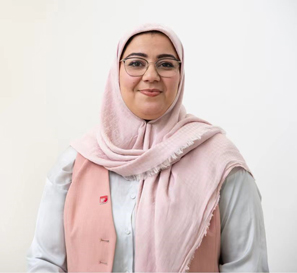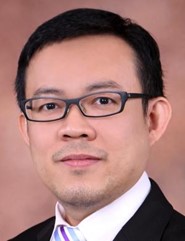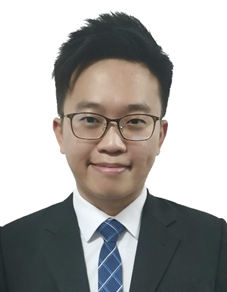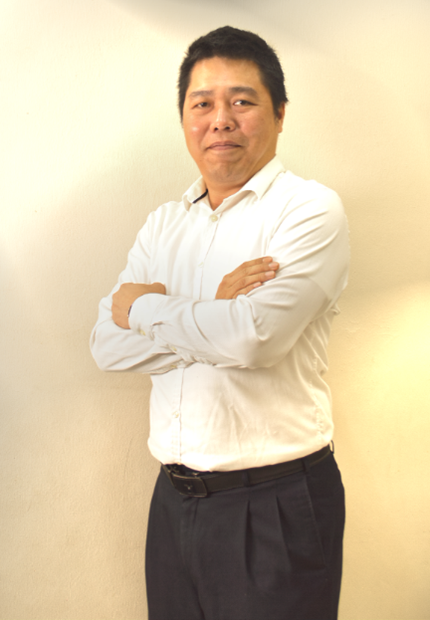
The role of cybersecurity towards digitalization and economic growth: challenges, uncertainties, 2024 and beyond
The key drivers of digitalization and economic growth are mainly Internet of Things (ToT), the Cloud and the convergence of Information Technology (IT) and Operational Technology (OT). The security challenges within these areas outline the need for cybersecurity within organisations and industries to prepare beyond 2024 and how AI, ML and blockchain can be resilient, organised and proactive to aid cyber security challenges. Security is about enabling risk to allow business to grow confidently, knowing that their valuable data and assets are protected against threats. Attacks on business are inevitable, recovery is not. Actions matter to business, customers, and shareholders. Recovering back up and running quickly is now more critical than ever. Automated computing technologies will aid to the needs of global customers more quickly.
Professor (Assoc) Carlene E-A Campbell
Swansea, Wales, United Kingdom
Carlene is a Professor (Assoc) in cybersecurity and Innovative Systems within the Wales Institute of Science & Art. Her managerial and leadership experiences have been acquired over more than twenty-five years. The latter 10 years working as Professor (Associate), Institute Manager for Research Degrees (IMORDs); Faculty Head of Research Lead, and Previously Senior Lecturer and Lecturer respectively in the School of Applied Computing at the University of Wales Trinity Saint David (UWTSD). She is one of the expert advisers on the SMART Digital Accelerator project at UWTSD. This is the Welsh government-funded project consisting of a team of industry expert advisers who work with manufacturers in Wales to help them identify the right technology to boost their bottom line and the research supervisor for researchers on MADE Cymru. She is also a current member of the Institution of Engineering and Technology (IET) professional body and former Chair (4 years) of the IET Wales South Wales committee which is very much involved with community services.
Carlene has over 25 years of experience, as a leading researcher and academic within the field of Cybersecurity & Computer Forensics, Computer & Wireless Networks and other areas of digital technologies. She has gained respect in industry, policy and academia. Her research work spans various interdisciplinary and collaborative research projects by applying technological solutions within areas such as Automotive Engineering, Built and Natural Environment, Electrical and Electronic Engineering, etc.
Carlene has supervised several students at doctoral level to successful completion in the areas of cybersecurity, SMART IoT, computer & wireless communications etc. She is currently on the MADE Cymru projects at UWTSD in Blockchain, Operational Technology (OT) Cybersecurity and Machine Learning with a number of doctoral Research Associated

The Impact of Emerging Technology on Society: Opportunities, Challenges, and Ethical Considerations
This paper examines the multifaceted relationship between emerging technology and society, focusing on the opportunities, challenges, and ethical considerations inherent in their interaction. As technological advancements continue to accelerate across diverse fields such as artificial intelligence, biotechnology, blockchain, and renewable energy, their impact on society becomes increasingly pronounced. This study delves into the ways in which emerging technologies shape various aspects of human life, including economic systems, social structures, cultural practices, and ethical norms. By exploring topics such as innovation ecosystems, regulatory frameworks, technological disruption, and global perspectives, this paper seeks to provide a comprehensive understanding of the complex interplay between technology and society. Furthermore, it highlights the importance of fostering responsible innovation, promoting inclusivity, and addressing ethical dilemmas to ensure that emerging technologies serve the collective good and contribute positively to the advancement of humanity.
Professor Ts Dr Rusli bin Haji Abdullah
University Putra Malaysia, Serdang, Selangor, Malaysia
Professor Ts Dr Rusli bin Haji Abdullah a Senator member of Universiti Putra Malaysia (UPM) right now. He is attached at Software Engineering and Information System Department currently, as well as the former Dean of Faculty of Computer Science and Information Technology (CSIT), UPM. Specialized in Software Engineering and Knowledge Management that he has completed his PhD in Computer Science at Universiti Teknologi Malaysia (UTM), Johor, Malaysia in 2006. Starting his career as a lecturer since 1996, after served as System Analyst for 8 years at UPM.
He has published over 14 books and more than over 160 journal papers, conference publications and other academic research publications especially in Scopus with h-index is 18 currently. Furthermore, he has also been published the articles in Malaysian newspapers such as Berita Harian and Harian Metro with regards to Emerging Technologies and Its application like Smart Agriculture, MySejahtera Application, ChatGPT System application, and Youth Digital Hub. He has also received numerous awards and recognitions throughout his career that includes Silver Medal for University Research Invention in 2008 and 2009, Gold Medal for University Research Invention 2005, Silver Medal for Invention of Technology and Exposition I-TEX (2009), Silver Medal for Malaysian Research Invention and Exposition – MTE (2010, 2012 & 2014) as well as Certification of University Excellent Services based on Lecturer Services for many years since 1999 up to now.
In the context of administrative environment, he has been appointed as Head of Lab for Institute of Software Development, UPM in 2007, Deputy of Chief Information Officer for IDeC, UPM in an early of 2008, and Head of Information System Department of Computer Science and Information Technology Faculty (FKSTM), at the end of year 2008. He was become a Deputy Dean of KSKTM, UPM from 2009 to 2014. In the years of 2018 to 2019, he was appointed as Deputy Dean of School of Graduate Studies (SGS) UPM. And then, the most recent, he was appointed as the Dean of FSKTM, UPM since 2019 until 2021.
His experience in the field has made him to be selected as a keynote speaker for several conferences includes International Putra InnoCreative in Teaching and Learning(i-PicTL 2021) International Symposium of Environmental and Occupational Health (ISEOH2020), International Webinar on Digital Seminar Series#3(2020), The First International Conference on Computer Science and Its Application in Agriculture (ICOSICA 2020), Knowledge Management International Conference 2018 (KMICE2018), International Conference on Artificial Intelligence and Evolutionary Algorithms in Engineering Systems (ICAEES-2014), Noorul Islam University, India in 2014, 12th WSEAS International Conference on Software Engineering, Parallel and Distributed System (SEPAD’13), University of Cambridge, United Kingdom in 2013 and Malaysia Software Engineering Conference (Mysec2013). He is part of the Technical Advisory Group of UPM Student Information System from 2009 to 2012 and currently as a committee member of Malaysia Software Engineering Interest Group (MySiG) that he has been appointed since 2007.
Along of his service, he has been received more than over 12 research and collaboration grants as principal investigator (PI) at National level such as from MOHE, MOSTI and MDeC as well as at the International Level such from Japan University. On top of that, he had also gotten some tasks of consultation from international universities and local industries in helping them such as Saudi Arabia universities to evaluate their staff for promotion, and Malaysian IT Development Council (MDeC) respectively. Besides that, he has served as journal editor board as well as journal reviewer at national level and international level respectively. Furthermore, he also been involved as a chairman as well as a committee member for many conferences at national and international levels.

The Therapist: Annie the chatbot
The use of AI to provide mental health support in conservative communities.
Short description:
Our team is dedicated to crafting a cutting-edge generative AI system tailored to enhance mental health support in communities facing access, availability, and affordability challenges. This innovative system will deliver conversational therapy adhering to established therapeutic protocols endorsed by various practitioners. It is designed to be culturally responsive and adjusted to the religious contexts of users. The architecture includes a dual-interface dashboard for patients and therapists with risk assessment tools that analyse conversational signs and offer critical signposting functions.
Project Website:https://shorturl.at/rsQY5
Dr. Mabrouka Abuhmida
University of South Wales, UK.
Dr Mabrouka Abuhmida, a Senior Lecturer in Computing and the guiding force behind the MSc Artificial Intelligence course, is celebrated as the STEM Woman of the Year 2023. Her extensive expertise in artificial intelligence and machine learning has been the cornerstone of interdisciplinary research. Her work, notably in mental health support and the development of intelligent technologies, showcases her innovative approach to applying AI to diverse sectors. Her leadership extends beyond academia; Her advocacy for seamless technology transfer is evident in her efforts to bridge gaps between public institutions and private enterprises, fostering partnerships that drive technological advancement and innovation.

Innovation in Epilepsy
In this lecture, I will show you the journey of a patient who was first presented with a seizure (initial presentation), assessed and investigated (EEG and MRI), and treated with various antiseizure medications (pharmacological treatment). Her seizures were not controlled, and she was subsequently referred for epilepsy presurgical evaluation (advances in monitoring), operated on (epilepsy surgery) and became seizure-free. Innovations that can be applied throughout these stages will be discussed, including images, EEG and neuroimaging analysis, big data and machine learning, and technological advances in epilepsy treatment.
Professor Dr. Lim Kheng Seang
Professor Dr. Lim Kheng Seang, a University of Malaya (Malaysia) graduate in 1999 with MRCP (UK), is a Professor of Neurology in the Faculty of Medicine, University of Malaya, and a Consultant Neurologist specializing in epilepsy at the University of Malaya Medical Centre and University Malaya Specialist Centre, Malaysia. He has been trained at the University of Malaya for his neurology subspecialty training (2008), followed by fellowship training in Melbourne (2011) and Cleveland (2017) for epilepsy. He completed his junior doctor training in Hospital Alor Setar, Kedah before joining University Malaya Medical Centre in 2005.
He is the President of the ASEAN Neurological Association (ASNA, 2023-2027), the General Secretary of the Asian and Oceanian Commission, International League Against Epilepsy (ILAE-AO), the chair of the Research Task Force in the commission, the past President of the Malaysian Society of Neurosciences (MSN) and Malaysian Epilepsy Society (PEM), an active member of the Malaysian Epilepsy Council and internationally and ex-chair of the Research Commission in the International Bureau of Epilepsy.
He has been involved in many trials of newer treatments (e.g., newer drugs and transcranial magnetic stimulation) in epilepsy. He also specializes in non-invasive and invasive epilepsy surgery assessment, including long-term video-EEG monitoring, intracranial monitoring with stereo-EEG, subdural and depth electrodes, electrocardiography, and cortical stimulation. Other areas of expertise included vagal nerve stimulation and callosotomy evaluation and monitoring.
He is currently the Associate Editor for Neurology Asia, an Editorial Board member of the Journal of Xiangya Medicine, and on the committee of the recent 7th Asian Oceanian Congress on Clinical Neurophysiology (AOCCN) held in February 2021. He has published ≥ 120 original papers with an H-index of 19, in journals including Neurology (IF:8.055), Epilepsia (IF:5.562), Neuron (14.403), and JAMA Neurology (IF:29.91). His research works focus on the psychosocial aspects of epilepsy, clinical studies especially epilepsy surgery and seizures in brain tumors, genetics in focal and familial epilepsies, pharmacogenomics and pharmacokinetics of antiepileptic drugs, quantitative EEG and quantitative MRI research, and artificial intelligence. He is active in research, being the principal investigator and co-investigator in many local and international research projects, and has a strong collaboration with Southeast Asia, Taiwan and Hong Kong, Australia and New Zealand, and the United Kingdom. He was recently awarded the Impact Oriented Interdisciplinary Research Grant (IIRG) Programme on epilepsy.

Neural Interface and Intelligence
The rapid advancement in AI and neuroimaging technologies has opened new avenues for diagnosing and treating neurological disorders. However, the complexity and cost of these technologies often pose barriers to their widespread adoption, particularly in developing regions. To address this challenge, we present a web-based EEG source imaging tool enhanced with AI capabilities, designed specifically for medical doctors. Our platform combines advanced EEG source imaging with AI-driven analysis to provide accurate and efficient source localization of neural activities. The AI algorithms are trained on diverse datasets to automatically detect and highlight abnormal brain activity patterns, i.e., those associated with epilepsy. This tool significantly reduces the time and expertise required for analysis, making it accessible even to clinicians with different levels of technical backgrounds. Moreover, the web-based nature of the tool ensures accessibility from any location with internet connectivity, facilitating remote consultations and collaborative diagnoses.
Dr Goh Sim Kuan
Sim Kuan Goh obtained his B. Eng. and Ph.D. from the National University of Singapore. He is currently an assistant professor at Xiamen University, Malaysia. Prior to joining Xiamen University Malaysia, he was a research fellow at the Air Traffic Management Research Institute, Nanyang Technological University. His research focuses on computational intelligence, deep learning, and brain-computer interface. He is an IEEE Senior Member

Innovation & Revolution On Brain-Computer Interface & Neurotechnology 2024
The field of Brain-Computer Interface (BCI) and Neurotechnology is undergoing a transformative shift, driven by innovative applications and revolutionary advancements. Explore the cutting-edge applications of BCI technology in various real-world scenarios, highlighting the significant impact these developments are having on both research and practical implementations. One key area of focus is the integration of BCI in neuropsychological research and therapeutic gaming. The BrainPY game, designed for children with mental health issues, exemplifies how EEG data can be combined with immersive gameplay to assess and enhance cognitive and emotional well-being. This application demonstrates the potential of BCI technology to create meaningful interactions that contribute positively to mental health. The discussion will also cover unique applications, such as recording EEG data from horses to study equine brain activity, illustrating the adaptability of BCI devices in unconventional settings. This approach underscores the versatility of BCI technology in environments where traditional EEG setups may not be feasible. Additionally, future possibilities in the integration of BCI with AI-driven tools like ChatGPT and DALL-E will be explored. These interfaces have the potential to create more personalized and interactive user experiences, marking a significant advancement in the way humans interact with technology and their environment. This session provides a comprehensive overview of the current and future applications of BCI, showcasing how innovation is driving a revolution in neurotechnology.
Mr. Kelvin Wong
Mr. Kelvin Wong is the General Manager of Ultra Technology Engineering (UTE), bringing over 12 years of experience in biomedical products, particularly with g.tec medical engineering. He also has a decade of experience with Maplesoft products, including Maple and MapleSIM, and five years working with DigitalED's Mobius Online STEM Education platform. Mr. Kelvin Wong earned his Bachelor of Electrical & Electronic Engineering degree from UCSI University and has since been actively involved in STEM education, control systems, Brain-Computer Interface (BCI), and Neuro-Rehabilitation.

